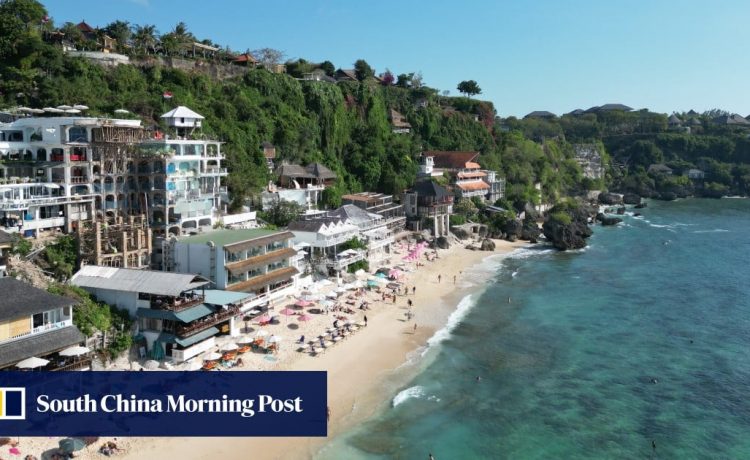Both places are similar “in that they’re very high-ticket, low-yield markets, whereas Bali is low-ticket, high-yield”, said James Hartshorn, CEO and co-founder at Palm Developments, a Hong-Kong based developer with a growing Bali portfolio.
Affluent buyers are increasingly drawn to the south of the island, particularly on the arid Bukit peninsula, where properties are yielding 15 to 18 per cent a year, he said.
The market is buoyed by an influx of international tourists after Indonesia scrapped its pandemic travel restrictions and eased visa rules in 2022. In April, Bali welcomed 503,194 foreign visitors, up by more than 7 per cent from March and 22 per cent from a year ago, according to official data.
Bali also attracts domestic migrants who are drawn to the region’s infrastructure and burgeoning tech scene, according to Widya Lestaluhu, head of the Hong Kong office at Benham & Reeves, a London-based property agent.
“People tend to forget that Bali is just a small part of Indonesia, which has the fourth-largest population in the world,” she said. “The local migration to Bali can prop up the island’s rental yields and support capital growth.”
John Truong, a 38-year-old British national working in finance in Hong Kong, said he bought a villa in Bali in the US$200,000 to US$250,000 range last September to tap the island’s higher investment returns.
According to Truong’s research, the return on investment in Bali was about 15 to 20 per cent at the time, compared to 2 per cent in Hong Kong, 4 to 6 per cent in Malaysia and Vietnam, and 8 per cent in Thailand, he said.
Truong, who paid the developer before construction began, said he aims to visit the island only twice a year, because his properties are “predominantly aimed at return rather than personal usage”.
“I have invested with a long-term view to hold for the next 20 to 30 years, and the only reason I would potentially sell out of the property is if I needed the cash on an emergency basis,” he said.

Investing in Bali property as a foreigner comes with some limitations, however.
While Indonesian citizens have a freehold on both the property they own and land it is built on, foreign owners can only lease the property for a specified period, with the option to extend. Alternatively, they can set up a local company and obtain a freehold for a maximum of around 80 years.
Foreign property owners also face higher tax rates than Indonesian citizens. Truong said he pays an income tax that is 20 per cent of the lease value, whereas for local tax residents, the rate is only 10 per cent.
“Non-domiciled tax is quite punitive in Bali, but it is also true for most of Asia where properties are affordable with a good return profile,” said Truong.
Despite the constraints, Bali’s property market is gaining pace, led by hospitality-related developments. The segment grew 184 per cent last year, adding 1,816 units across 21 projects, according to a report published in March by consultancies C9 Hotelworks and Horwath HTL.
New projects are increasingly built by smaller developers that offer managed and affordable residences catering to investors. Entry-level property starts at around US$130,000 and primarily targets buyers seeking high rental yields, indicating a shift in investor focus to value and performance in the post-pandemic era, the report said.







